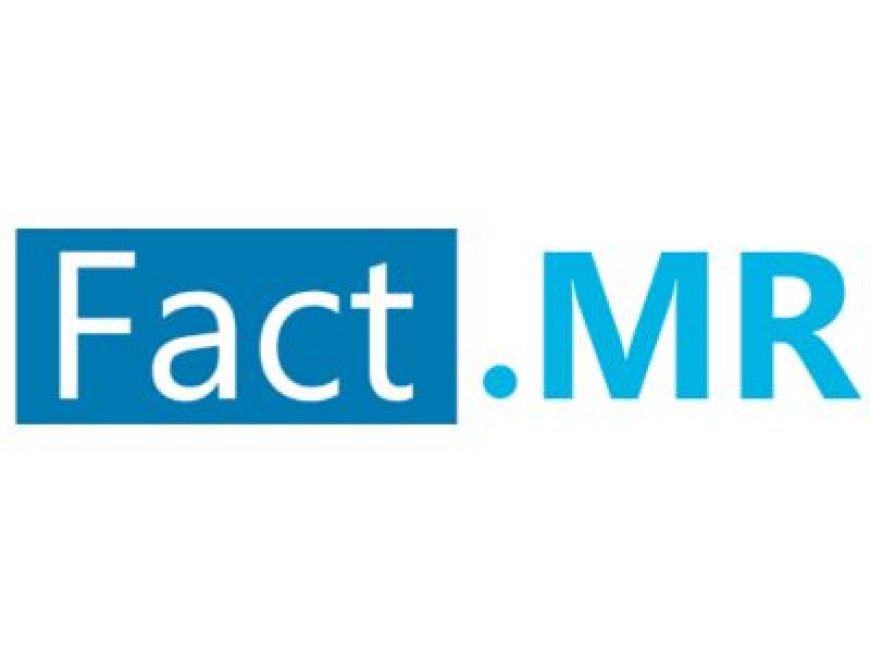Lysosomal Storage Disease Market Major Players, Key Growth Trends And Forecast by Fact MR
In 2024, the global lysosomal storage diseases market (リソソーム蓄積症市場) is estimated to be valued at US$ 11,678.9 million. It is projected to grow at a compound annual growth rate (CAGR) of 10% from 2024 to 2034. By 2034, the market is anticipated to reach US$ 30,584.4 million.

The dependable lysosomal storage diseases market research includes analysis and discussion of significant industry trends, market size, and market share projections. This market report includes a chapter on the global market and related companies with their profiles, which provides important information about their financial situation, product offerings, investment goals, and business and marketing activities. The four main sections of the report—market definition, market segmentation, competition analysis, and research methodology—can be separated into separate sections. A clear, comprehensive, and exceptionally high-quality report is produced to get an understanding of all market-related elements.
In 2024, the global lysosomal storage diseases market (リソソーム蓄積症市場) is estimated to be valued at US$ 11,678.9 million. It is projected to grow at a compound annual growth rate (CAGR) of 10% from 2024 to 2034. By 2034, the market is anticipated to reach US$ 30,584.4 million.
Lysosomal Storage Disease (LSD) refers to a group of rare genetic disorders characterized by the accumulation of toxic materials in the body's cells due to enzyme deficiencies. These disorders can affect various organs and tissues, leading to severe and often life-threatening symptoms. The LYSOSOMAL STORAGE DISEASE market is driven by factors such as increasing awareness, advancements in diagnostic techniques, and the development of novel therapies. However, challenges such as high treatment costs and limited access to therapies in developing countries restrain market growth.
Get Free Sample Copy of This Report: https://www.factmr.com/connectus/sample?flag=S&rep_id=9533
Market Dynamics:
The lysosomal storage disease market (리소좀 축적 질환 시장) is primarily driven by the increasing prevalence of these diseases and the growing demand for effective treatment options. Additionally, the availability of advanced diagnostic tools, such as genetic testing and biomarker assays, has facilitated early and accurate diagnosis, further propelling market growth. Moreover, the development of innovative therapies, including enzyme replacement therapy (ERT) and substrate reduction therapy (SRT), has significantly improved patient outcomes and quality of life.
Market Future Outlook:
The lysosomal storage disease market is expected to witness significant growth in the coming years, driven by ongoing research and development activities aimed at developing novel therapies. Gene therapy, in particular, holds immense promise for the treatment of lysosomal storage diseases, as it addresses the underlying genetic cause of the diseases. Additionally, increasing investments in healthcare infrastructure and rising awareness about rare diseases are expected to drive market growth further. However, challenges such as high treatment costs and regulatory hurdles may hinder market expansion to some extent.
Market Insights:
The lysosomal storage disease market (marché des maladies de surcharge lysosomale) is segmented based on type, treatment, and geography. By type, the market is classified into Gaucher disease, Fabry disease, Pompe disease, and others. ERT and SRT are the primary treatment options available for lysosomal storage diseases, with ERT being the most commonly used therapy. North America dominates the global lysosomal storage disease market, owing to the high prevalence of these diseases and the presence of key market players in the region. However, the Asia-Pacific region is expected to witness rapid market growth, driven by increasing healthcare expenditure and improving access to healthcare facilities.
Key Players:
- Novartis AG (Switzerland)
- Johnson & Johnson Private Limited (U.S.)
- Teva Pharmaceutical Industries Ltd. (Ireland)
- Merck & Co., Inc. (U.S.)
- Allergan (Ireland)
- Pfizer Inc. (U.S.)
- GlaxoSmithKline plc (U.K.)
- Sanofi (France)
- Merck KGaA (Germany)
- Abbott (U.S.)
- Boehringer Ingelheim International GmbH. (Germany)
- Takeda Pharmaceutical Company Limited (Japan)
- Amicus Therapeutics, Inc. (U.S.)
- Moderna, Inc. (U.S.)
- Greenovation Biotech GmbH (Germany)
- Biomarin (U.S.)
- JCR Pharmaceuticals Co., Ltd (Japan)
- ISU ABXIS (South Korea)
Competitive Landscape:
Recent advancements in lysosomal storage disease treatment include innovative therapeutic approaches like gene and enzyme replacement therapies. These advancements offer hope for improved outcomes, with targeted treatments and precision medicines showing promise. Diagnostic tools such as advanced imaging techniques and genetic testing also contribute to earlier and more accurate diagnoses, enabling timely interventions.
Collaborative efforts between pharmaceutical companies, research institutions, and healthcare providers continue to drive progress in understanding and treating lysosomal storage diseases.
Key recent advancements include:
In August 17, 2023, an Italian pharmaceutical company and a Boston biotech firm partnered to advance a groundbreaking blood-brain barrier-crossing platform for lysosomal storage disorders, marking a significant stride in medical innovation.
On June 15, 2023, the CHOC Research Institute celebrated a major triumph as Dr. Raymond Wang secured a $3.2-million NIH research grant to pioneer gene therapy for mucopolysaccharidosis type I, a rare lysosomal storage disease.
On September 2, 2022, Chiesi Global Rare Diseases unveiled significant findings at the Society for the Study of Inborn Errors of Metabolism Annual Symposium. Results from the clinical development program, in collaboration with Protalix BioTherapeutics, showcased the potential of pegunigalsidase alfa (PRX-102) as a promising enzyme replacement therapy for adult patients combating Fabry disease.
Get Customization on this Report for Specific Research Solutions: https://www.factmr.com/connectus/sample?flag=RC&rep_id=9533
About Fact.MR :
We are a trusted research partner of 80% of fortune 1000 companies across the globe. We are consistently growing in the field of market research with more than 1000 reports published every year. The dedicated team of 400-plus analysts and consultants is committed to achieving the utmost level of our client’s satisfaction.
Contact:
US Sales Office
11140 Rockville Pike
Suite 400 Rockville, MD 20852
United States Tel: +1 (628) 251-1583, +353-1-4434-232 (D)
Sales Team: sales@factmr.com







